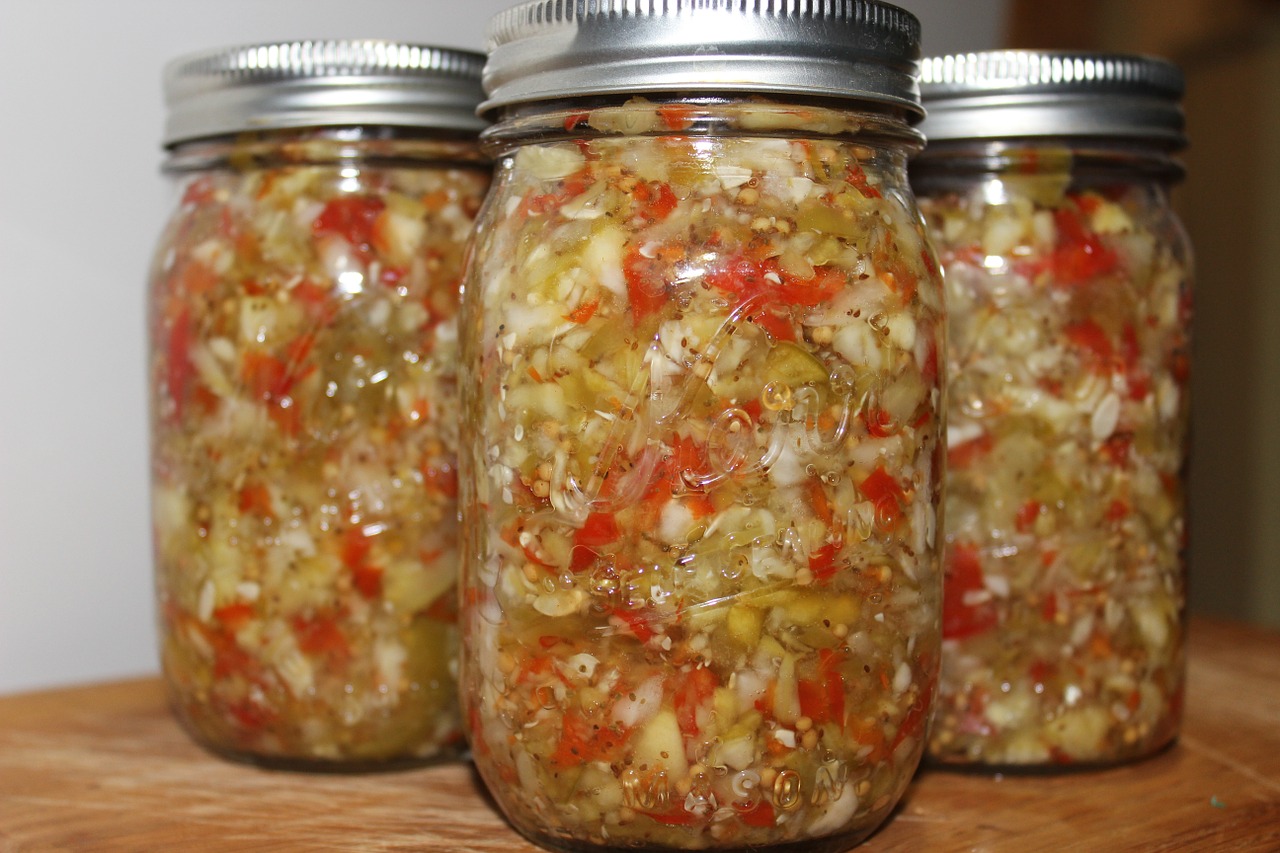I have a fellow co-worker whose favorite saying is “Just because you can doesn’t mean you should.” This piece of advice applies to a wide variety of topics from using expired food to standing on the top of a ladder. In the world of food preservation, we can easily apply this to many techniques that have been handed down through the ages. More recently, I had to provide this answer to a consumer who contacted me regarding fermented foods. Her question was valid and a topic which I am receiving increasing questions about, so it is important to share.
The concerned and most diligent home food preserver who contacted me wanted to know about home preparation and canning of fermented foods ranging from pickles to kimchee and tempeh. This is a case where my co-workers saying is better phrased “Some things you can and other things you don’t”.
When it co mes to fermented and pickled foods like sauerkraut, pickles (quick and fermented) and pickled beets, these things can be safely fermented at home and preserved for future use. It is really important to make sure a tested recipe is being used, and I don’t mean tested by grandma, a friend of the family, or someone who has written into findarecipe.com. The acidity of these products must be at a specific level for them to be safe, especially if the intent is to store them long term (in the refrigerator, canned, or otherwise).
mes to fermented and pickled foods like sauerkraut, pickles (quick and fermented) and pickled beets, these things can be safely fermented at home and preserved for future use. It is really important to make sure a tested recipe is being used, and I don’t mean tested by grandma, a friend of the family, or someone who has written into findarecipe.com. The acidity of these products must be at a specific level for them to be safe, especially if the intent is to store them long term (in the refrigerator, canned, or otherwise).
I recommend recipes from the National Center for Home Food Preservation (http://nchfp.uga.edu/) as these recipes have undergone extensive testing regarding their safety both in terms of appropriate acidity and processing times (if the consumer should choose to can the product). Consumers should never alter the amounts of acid (usually in the form of vinegar) or salt used to make a brine. They should also refrain from adding water (or other liquid) which would alter the food to brine ratio.
When it comes to other fermented vegetables such as kimchee, tempeh, and kombucha, these things cannot be safely fermented at home and preserved for future use. At this time, the home preparation of fermented vegetables such as kimchee and kombucha is not recommended as there are no tested recipes available. My advice for consumers of these products would be to purchase a commercially prepared version.
Your local Extension service, the USDA, and the National Center for Home Food Preservation are the best resources for consumers desiring to learn more about pickling and fermenting foods. The USDA Complete Guide to Home Canning is available online (http://nchfp.uga.edu/publications/publications_usda.html) and has a section about fermenting and pickling foods.
Resources:
National Center for Home Food Preservation. http://nchfp.uga.edu/
United States Department of Agriculture, Food and Nutrition Information Center. http://fnic.nal.usda.gov/consumers/all-about-food/food-storage-and-preservation
University of Wisconsin Extension. http://fyi.uwex.edu/safepreserving/2013/09/23/safe-preserving-fermented-foods/
Written by: Christine Kendle, Extension Educator, Family and Consumer Sciences, Ohio State University Extension Tuscarawas County
Reviewed by: Linnette Goard, Field Specialist, Food Safety, Selection and Management, Family and Consumer Sciences, Ohio State University Extension

